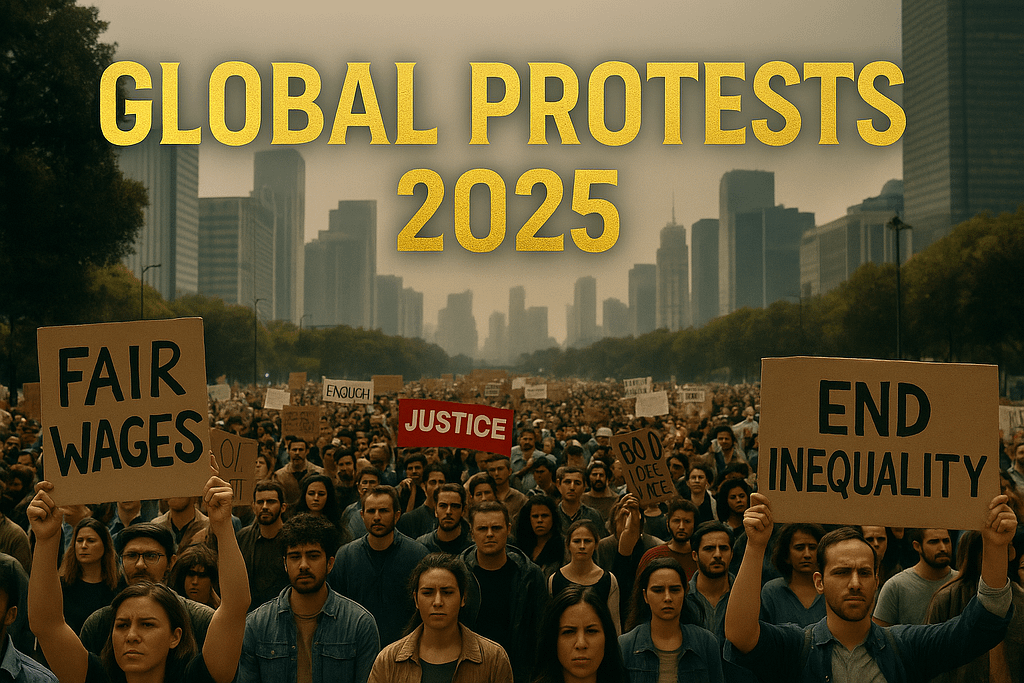In 2025, the world is witnessing a historic wave of global protests. From Europe to Latin America, from Asia to North Africa, citizens are taking to the streets demanding fairness, accountability, and change. The driving force behind these demonstrations is economic inequality, which has reached levels unseen in decades.
💰 The Growing Wealth Divide
According to the latest reports by the World Economic Forum, the wealthiest 1% of the world’s population now controls over 60% of global assets. Meanwhile, middle and working-class families are struggling with rising inflation, stagnating wages, and the aftermath of global crises.
In countries like France, India, and Brazil, workers are protesting not only low wages but also poor labor conditions and unfair taxation systems that favor corporations over citizens.
🔥 Cities in Unrest
Major cities such as Paris, Buenos Aires, and Manila have become the epicenters of peaceful marches that often turn into confrontations with law enforcement. In Morocco, Tunisia, and Egypt, thousands of young people have rallied against unemployment and corruption.
In some cases, protests have been met with heavy police presence and arrests, sparking international criticism from human rights organizations.
📊 The Digital Age of Activism
Unlike previous movements, this new wave of activism is deeply connected to social media. Platforms like X (formerly Twitter), Instagram, and TikTok are being used to organize rallies, share real-time updates, and expose government abuses.
Hashtags such as #GlobalProtests, #StandForJustice, and #InequalityCrisis have gained millions of interactions, amplifying voices that were once silenced.
🕊️ Governments Under Pressure
World leaders are facing mounting pressure to respond. Some countries have promised reform, while others have resorted to internet shutdowns and censorship. Analysts warn that ignoring these calls for justice could lead to deeper divisions and potential instability.
Economists argue that governments must focus on redistribution policies, job creation, and education reforms if they wish to prevent future unrest.
🌐 The Bigger Picture
The rise of global protests in 2025 signals more than just anger — it represents a demand for a new social contract. People no longer trust systems that prioritize profit over dignity.
The world is changing rapidly, and as inequality continues to grow, the question remains: will nations adapt and listen to their citizens, or will they continue down the path of division and discontent?



